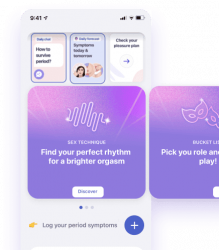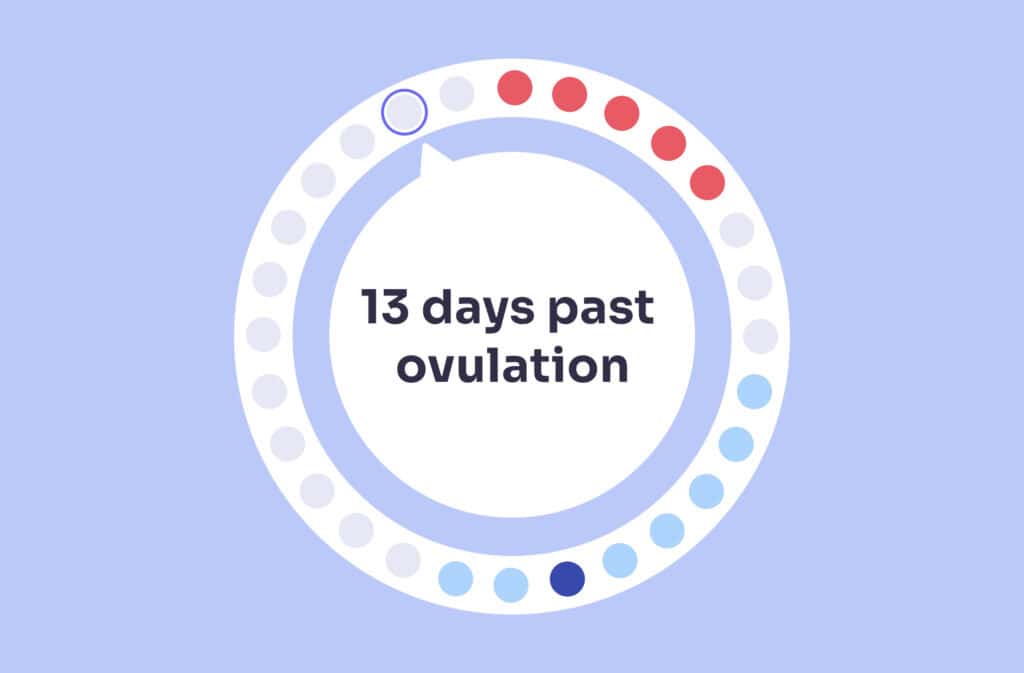Femia > Health Library > Your cycle > Sex > Coregasm: What it is and how to experience an exercise orgasm
Coregasm: What it is and how to experience an exercise orgasm

- Updated Mar 2, 2025
- Published
CRAFTED BY HUMAN
Crafted by human At Femia, we provide accurate and up-to-date information at every stage of your journey, from trying to conceive, pregnancy and postnatal support. All content is created by a real person based on in-depth research and own professional experience. Femia ensures that you will receive expert advice, strict accuracy and a personalized approach from our authors/medical experts. Learn more about our editorial policy.
FACT CHECKED
Fact checked At Femia Health, we maintain the highest standards of editorial excellence in delivering content focused on helping you conceive, guiding you through pregnancy, and supporting you postpartum. Explore our content review principles to learn how we ensure the accuracy and quality of our health and lifestyle tips for every stage of your journey.
A coregasm is an asexual orgasm that occurs during exercise, usually as a result of working out your abdominal muscles. Scientists don’t fully understand why a coregasm occurs, but it’s thought to be related to muscle fatigue during intense workouts. Some women experience a coregasm during core workouts such as crunches, rope climbing, and hanging leg lifts.
A coregasm, or corgasm, is an exercise-induced orgasm experienced during a workout. An exercise orgasm has nothing to do with sexual arousal and is rarely related to sexual thoughts or fantasies. Experts think coregasms are a physiological response to muscle stimulation during a workout.
Scientists aren’t sure why they occur, but it’s thought to be connected to muscle use during particular exercise workouts. Coregasms commonly occur during core workouts (hence the name), though they may also be experienced when cycling, climbing, and lifting weights.

What is a coregasm?
A coregasm is an exercise-induced orgasm. These are most commonly experienced during intense core workouts. Women who experience a coregasm are not sexually aroused when it occurs; they are not thinking about sexual thoughts or experiencing other signs of arousal.
Exercise-induced orgasms are nothing new; sexologist Alfred Kinsey first identified them during the 1950s. He noted that some women and men orgasm when climbing a rope or pole or holding themselves up on a bar.
According to a 2021 article published in the Archives of Sexual Behavior, around 9% of people have experienced exercise-induced orgasms. For some people, they are a regular occurrence, though for others, they may be a one-off.
While the term coregasm makes it sound like you’ll experience a full-blown orgasm at the gym, most women say it feels a little different. If you notice the sensations building, you might be able to prevent a workout orgasm by switching exercises or resting. If you push through and continue your workout, you might experience a coregasm.
👉Find out more: Understanding squirting: What it is, what it feels like, and how to do it
What does a coregasm feel like?
A coregasm will likely feel different from a regular sexual orgasm. The lack of clitoral stimulation means you won’t feel throbbing in your clitoris. Instead, you will experience the sensation in your pelvis, thighs, and abdomen.
Coregasms are not as tingly as sexual orgasms, so they may feel like a less intense physical sensation. Other women report it as more intense but shorter-lived, lasting only a few seconds. Other gym goers will likely be unable to tell you’re coregasming, so don’t waste energy feeling self-conscious.
How does a coregasm happen?
Scientists don’t yet understand why exercise-induced orgasms occur or why some women are more prone to them than others. The fact they are most common during intense core workouts hints that the abdominal muscles may play a role in facilitating coregasms.
The intensity of the workout is also relevant, as they are most common during intense workouts, leading scientists to suspect that muscle fatigue is relevant. The pelvic floor muscles contract rhythmically during orgasm, and these same muscles are thought to trigger an exercise orgasm.
If you want to achieve a workout orgasm, you’ll likely end up with rock-hard abs, because only 9% of people will ever experience an exercise orgasm, as mentioned above. There’s no harm in trying, though.
Coregasms are not linked with sexual fantasies or thoughts, so it’s assumed to be a purely physical response connected to exercise. Coregasms are an asexual bodily process.
The science behind a coregasm
Though scientists have been aware of exercise-induced orgasms since the 1950s, they do not yet know why these occur, though there are theories as to why some women experience orgasms during exercise.
It is thought to be associated with muscle fatigue, especially during core workouts. The abdominal muscles are connected to the pelvic floor muscles, which play an integral role during orgasm. It’s thought that shaking, fatigued abdominal muscles somehow stimulate orgasm, though this is a theory and hasn’t been scientifically proven yet.
Coregasm is likely to be impacted by physical anatomy and muscle strength, with some women experiencing regular orgasms during exercise while others never experience this phenomenon. Increased blood flow to the abdomen and pelvis during core workouts may also play a part in producing an exercise orgasm.
👉Find out more: Vabbing: What it is and how it works
Female coregasm: Why it’s more common
Coregasms can occur in both men and women, though it’s more commonly reported in women. The crucial role of the pelvic floor muscles is thought to be linked to the female coregasm, with pelvic floor muscles getting a workout at the gym.
For men, coregasm may be linked to prostate stimulation, though we don’t fully understand why yet. The mechanics of a prostate orgasm means male coregasms can be longer and more intense than a sexual orgasm. It’s possible to ejaculate, even without an erection.
Exercises that may trigger a coregasm
According to a 2011 study published in Sexual and Relationship Therapy, the exercises associated with coregasm include:
- abdominal exercises
- climbing ropes or poles
- biking/spinning
- weight lifting
- yoga
These abdominal workouts are the workouts most likely to cause coregasm. An intensive workout of these muscles may increase your chances of achieving coregasm.
- crunches
- side crunches
- rope or pole climbing
- leg lifts
- knee lifts
- pullups
- chin-ups
- hip thrusts
- squats
- flutter kicks
- hanging flutter kicks
- hanging straight leg raises
- hanging knee tucks
- plank
- hamstring curls
- hollow holds
Some women experience coregasm during biking and spinning, as well. Yoga is another exercise linked with workout orgasms, with certain poses putting the core muscles to work. Boat pose and eagle pose, for example, work out the core and may lead to female coregasm.
If you’re hoping to achieve coregasm, you‘ll want to focus on abdominal exercises that work your core. There’s no way to guarantee a workout orgasm, though understanding your coregasm triggers can help you plan a workout to boost your chances.
Even if you don’t manage a coregasm, you’ll have had a good workout by the time you’re done trying. According to a 2018 study published in Sexual Medicine Reviews, regular exercise can improve physiological sexual arousal, enhance sexual satisfaction, and boost body image.
👉Find out more: Does period sex make you more attached? Exploring the emotional and spiritual aspects
How to avoid coregasm
While there’s no physical reason to avoid having an orgasm mid-workout, many women report feeling self-conscious coregasming at the gym.
To prevent coregasm, you can try to:
- Restrict the exercises that cause them. Take note of which exercises trigger orgasm, and avoid these exercises in public if you don’t want to have a gym orgasm.
- Avoid pushing yourself when it comes to core workouts. Do fewer reps and rest between reps to stave off coregasm.
- Stop if you feel a coregasm building. If you notice the sensations that precede orgasm, switch to a different exercise, and focus on a different muscle group for a while.
Some women invest in home gyms for certain core exercises to work out privately without worrying about coregasming in public. However, this isn’t an option for everybody.
While you may feel self-conscious, there’s nothing shameful about a coregasm. It’s considered to be an asexual bodily response to exercise, and there’s nothing wrong with it.
Tips for experiencing a coregasm safely
Practicing safety at the gym is essential, so your first thought should be preventing injury and making sure to do exercises correctly. Schedule a session with a personal trainer to learn how to perform each exercise correctly to maximize results and reduce the risk of injury.
To experience coregasm safely, you should:
- Listen to your body when working out. If something feels like too much, take a break.
- Match your cycle. Your stamina varies throughout your cycle, so some weeks, you may be able to work harder than others.
- Listen to your body to avoid injury. Some days, you’ll be able to push yourselves, whereas others, you may need to cut your workout short.
- Warm down properly. Work through gentle stretches before ending your workout.

Questions from the Femia community
Are coregasms a sign that I’m doing an exercise wrong?
No, coregasms are not a sign you’re doing an exercise wrong. Coregasms can occur even when exercises are performed correctly. Scientists don’t understand why coregasms occur, but it’s likely connected to fatigued muscles during intense workouts.
Is there any risk associated with having a coregasm?
No, having a gym orgasm doesn’t increase your risk of injury. You should continue to exercise properly to avoid injury and strain, but ease off if you think you’re overdoing it with core exercises in search of coregasm, and don’t forget to warm down after exercising.
The bottom line
A coregasm is an exercise-induced orgasm while working out. These usually occur during core workouts but can also happen during spin class, yoga, and other exercises. Coregasms are pretty common, with around 9% of people experiencing one in their lifetime. Some people experience them only once, whereas others are regular coregasmers. Both men and women can coregasm, though women are more likely to experience one.
Scientists don’t yet fully understand why coregasm occurs, but it’s thought to be related to muscle fatigue during intense workouts. The abdominal muscles are connected to the pelvic floor muscles, which contract during female orgasm, and it’s thought that activation of these muscles during exercise could be what causes a workout orgasm.
Coregasm is natural and asexual in nature. It is a bodily response to exercise and has nothing to do with sexual arousal. Some women report feeling self-conscious when coregasming in public, but there’s nothing to feel embarrassed about.
If you want to avoid public coregasms, you can tailor your workouts to eliminate exercises that have triggered a gym orgasm for you in the past. However, there’s nothing wrong with a coregasm, and your fellow gym-goers will likely have no idea you’ve just reached climax.
References
- Herbenick, Debby, and J. Dennis Fortenberry. “Exercise-Induced Orgasm and Pleasure among Women.” Sexual and Relationship Therapy, vol. 26, no. 4, 2011, pp. 373–88, https://doi.org/10.1080/14681994.2011.647902.
- Herbenick, Debby, et al. “Exercise-Induced Orgasm and Its Association with Sleep Orgasms and Orgasms during Partnered Sex: Findings from a U.S. Probability Survey.” Archives of Sexual Behavior, vol. 50, no. 6, 2021, pp. 2631–40, https://doi.org/10.1007/s10508-021-01996-9.
- Stanton, Amelia, et al. “The Effects of Exercise on Sexual Function in Women.” Sexual Medicine Reviews, vol. 6, no. 4, 2018, pp. 548–57, https://doi.org/10.1016/j.sxmr.2018.02.004.

Click to understand the symptoms and possible causes of a hypertonic pelvic floor. Find your treatment strategy to relieve hypertonicity and improve your pelvic health.

Discover tips and strategies for getting pregnant naturally with endometriosis. Learn the best times to try after surgery and how to improve your chances of conception.

Discover the symptoms at 13 days past ovulation (13 DPO), body changes, and how to accurately test for pregnancy as hCG levels become detectable. Expert advice from Femia.

